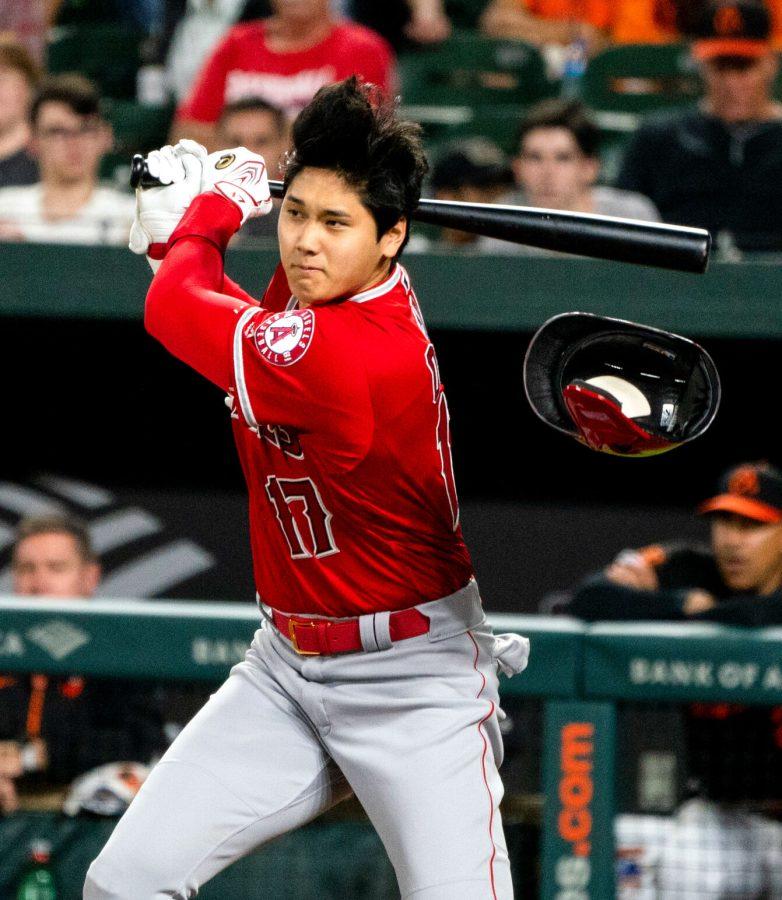In May of this year, NBA superstar Kevin Durant was having a conversation on Twitter with his Brooklyn Nets teammate Mike James. James posted a video of a player for the Los Angeles Angels of Anaheim who threw 88 pitches as the starter, batted multiple times, and then moved from the mound into right field so he could stay in the game. Durant replied to the video, “Different breed. Trading for him now in the show, Trea Turner might have to dip lol.” Durant was referring to the “MLB: The Show” video game franchise, specifically a mode of the game where individual players can build their own teams by signing, trading, or drafting players. So, who was the player that Durant was referring to? The two-way phenom and Japanese import, Shohei Ohtani.
Ohtani, like many kids in Japan, grew up loving baseball and dreaming of a professional career. That would come to fruition with the Hokkaido Nippon-Ham Fighters of the Nippon Professional Baseball league. From there, Ohtani would establish himself as a unique phenomenon: a two-way player. In 2015, Ohtani led the league in earned-run-average as a pitcher. In 2016, he earned the NPB’s Most Valuable Player award by hitting .322 and blasting 22 home runs at the plate. On the mound, he had a microscopic ERA of just 1.86. After the 2017 season, Ohtani announced that he would leave Japan to go pro in America.
Various major league teams tried to woo the electrifying Ohtani to sign with them. First they would have to pay a $20 million posting fee to the Ham Fighters, in addition to the $3.6 million signing bonus. Ohtani would pass up a chance to bring his talents to the bright lights of a market like New York or Los Angeles, instead choosing to sign with the mid-market LA Angels, who—despite their silly name—actually play 40 minutes from Tinseltown in suburban Orange County.
Ohtani immediately made a name for himself in the majors in his 2018 rookie season, hitting .285 as a position player with 22 home runs, 61 runs batted in, and a .925 on-base-plus-slugging-percentage. As a pitcher, he went 4–2 with a 3.31 ERA, striking out 63 batters in 51 and two-thirds innings. However, Ohtani suffered an injury to his UCL, which required surgery that would shut him down for the remainder of the 2018 and all of the 2019 seasons as a pitcher. Despite this setback, Ohtani still won the prestigious American League Rookie of the Year award.
Despite not pitching in 2019, Ohtani continued to hit, with an .848 OPS in 106 games. In the COVID-shortened 2020 season, he struggled on both sides of the battery, hitting just .190 with a .657 OPS, and giving up 7 earned runs in 1 and two-thirds innings as a starter. 2021, however, proved to be not just Ohtani’s best season so far, but, arguably, one of the best for any player in modern baseball history. As of the time of this writing, Ohtani leads the majors in home runs (40), total bases (269), and extra-base hits (70); he’s also second in slugging percentage (.637), and fourth in RBIs (88). This is to say nothing of his dominance on the mound, where he is 8–1 as a starting pitcher with a superb 2.79 ERA in 18 starts, striking out 120 batters in 100 innings.
Ohtani-mania has also taken the country by storm, with the Angels superstar getting standing ovations in opposing ballparks, something that I can’t remember happening for any ballplayer since Mark McGwire’s record-breaking season of 1998. When Ohtani participated in the 2021 Home Run Derby and All-Star Game in July, both events got near-record ratings. However, Ohtani’s success has not been without its detractors. ESPN personality Stephen A. Smith attracted a firestorm of controversy in July for saying that he didn’t think someone like Ohtani—who can speak English but chooses to use an interpreter—deserves to be the face of baseball. Many people found Smith’s comments to be incredibly ignorant, if not outright racist. Detroit Tigers color commentator Jack Morris was suspended after using a faux-Asian accent as Ohtani was coming to bat. Despite this, Ohtani has risen above it all. New York Times sports columnist Kurt Streeter has speculated that as the pandemic has led to a horrific rise in hate crimes and other attacks against Asian-Americans, an Asian-born player like Ohtani rising to the pinnacle of America’s pastime has given many people a positive role model to look up to. Ohtani is everything an athlete should be: humble, gracious, decent, not to mention a heck of a lot of fun to watch. We should all be grateful that we got the chance to watch him play in our lifetimes.
Shohei Ohtani is the greatest show in baseball, and maybe all of sports
August 29, 2021
About the Contributor
Jack Sherman, Sports Writer





















































